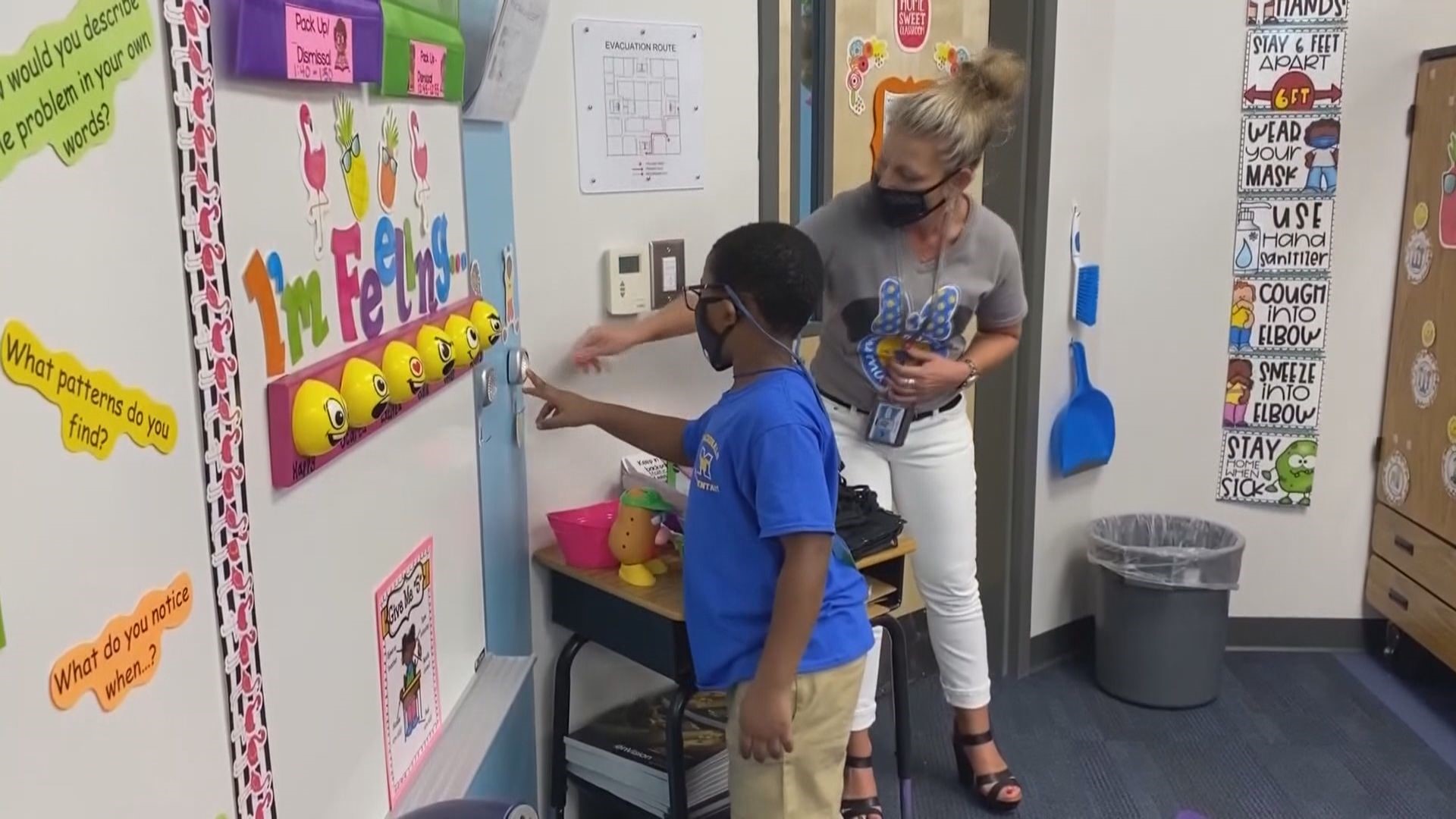FLORIDA, USA — Much of the 2022 legislative session has been centered around Florida classrooms and the largest teachers union in the state says it's causing more and more educators to walk away.
Last month, the Florida Education Association determined the state had 4,000 teacher vacancies and President Andrew Spar says the Florida Board of Education anticipates that number will grow to 9,000 vacancies by the end of this school year.
"The joy and the passion is being sucked out of our profession," said Stephanie Yocum, a former algebra teacher who left after 10 years to lead the Polk Education Association.
According to teachers we talked with around the Tampa Bay area, there are several reasons for educators to leave the classroom. Some are burned out from the strain caused by the COVID-19 pandemic. Others are finding new opportunities with better pay.
"Every time they add another rule into how we pay teachers, it’s hurting our experienced teachers. It’s why we’re seeing so many experienced teachers leave the classroom," said Spar who is urging lawmakers not to pass HB 1203 which would add another regulation to how districts offer pay increases to teachers.
Recent legislation in Florida surrounding teacher pay increases has been centered around base salaries and bonuses rather than incentives to retain longtime educators. In 2020, Gov. Ron DeSantis raised the teacher base pay in Florida to at least $47,500. The following year he handed out $1,000 bonuses to all Florida teachers for their efforts during the COVID-19 pandemic.
Two other high-profile bills are getting a lot of nationwide attention for the impact they could have on Florida classrooms.
HB 1557 limits classroom instruction on sexual orientation and gender identity. Supporters say it gives parents more oversight. HB 7 restricts lessons that could make students feel discomfort or guilt based on their race or gender. It bans teaching the idea that someone could be inherently racist.
In a recent poll of Florida voters conducted by Clearview Research, 93% agreed, "We need to teach our children both the good and bad from history and current events to prepare them to be well-informed and independent thinkers, even if it makes some people feel uncomfortable."
The Florida Education Association paid the research company to conduct the poll which also found 92% of respondents want better pay for teachers.
Although all of this legislation still has a ways to go before it reaches the governor's desk to become law, Yocum says teachers are taking notice of the limitations coming out of Tallahassee.
"I love algebra. I like teaching math but we go into this for the relationships we build and we feel like we’re making a difference in kids’ lives," she said.
A bright spot for education during this legislative session lies in the budget. Florida lawmakers are carving out more money than ever before for schools.
"We should applaud lawmakers," Spar said.

